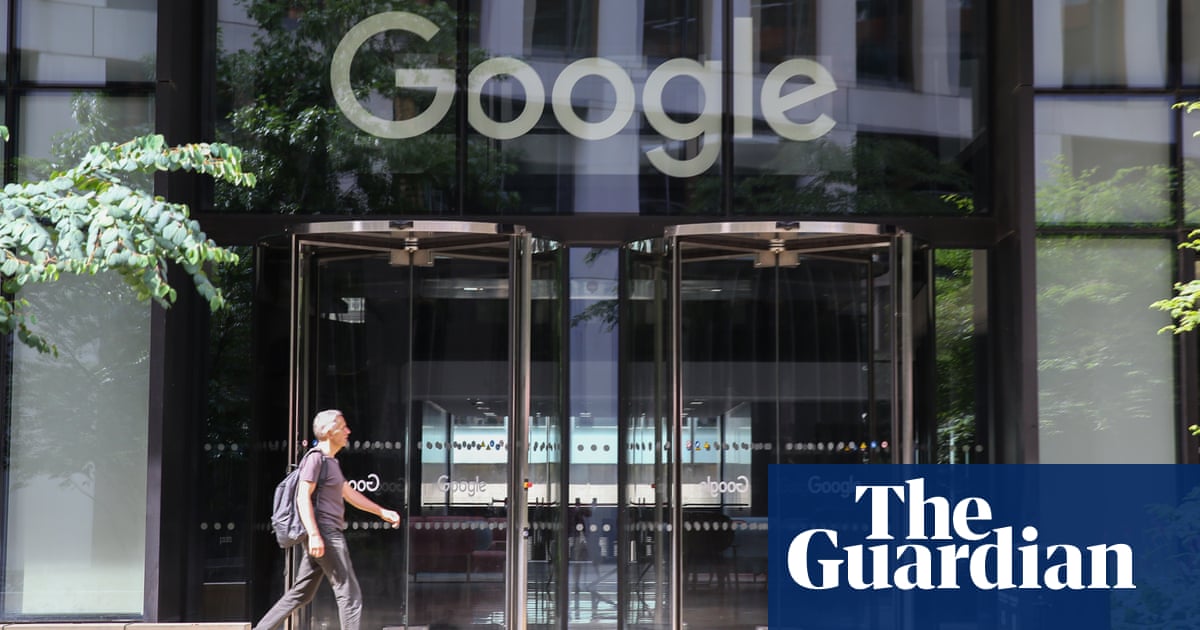Relevant privacy part of the article:
>The Online Safety Bill is due to pass in the autumn. Aimed at protecting children, it lays down strict rules around policing social media content, with high financial penalties and prison time for individual tech execs if the firms fail to comply.
>
>One clause that has proved particularly controversial is a proposal that encrypted messages, which includes those sent on WhatsApp, can be read and handed over to law enforcement by the platforms they are sent on, if there is deemed to be a national security or child protection risk.
Archived version: https://archive.ph/2Y3u6
It was difficult to maintain a poker face when the leader of a big US tech firm I was chatting to said there was a definite tipping point at which the firm would exit the UK.
I could see my own surprise mirrored on the faces of the other people in the room - many of whom worked there.
They hadn't heard this before either, one told me afterwards.
I can't tell you who it was but it's a brand you would probably recognise.
I've been doing this job for long enough to recognise a petulant tech ego when I meet one. From Big Tech, there's often big talk. But this felt different.
It reflected a sentiment I have been hearing quite loudly of late, from this lucrative and powerful US-based sector.
'Tipping point'
Many of these companies are increasingly fed up.
Their "tipping point" is UK regulation - and it's coming at them thick and fast.
The Online Safety Bill is due to pass in the autumn. Aimed at protecting children, it lays down strict rules around policing social media content, with high financial penalties and prison time for individual tech execs if the firms fail to comply.
One clause that has proved particularly controversial is a proposal that encrypted messages, which includes those sent on WhatsApp, can be read and handed over to law enforcement by the platforms they are sent on, if there is deemed to be a national security or child protection risk.
The NSPCC children's charity has described encrypted messaging apps as the "front line" of where child abuse images are shared, but it is also seen as an essential security tool for activists, journalists and politicians.
Currently messaging apps like WhatsApp, Proton and Signal, which offer this encryption, cannot see the content of these messages themselves.
WhatsApp and Signal have both threatened to quit the UK market over this demand.
The Digital Markets Bill is also making its way through Parliament. It proposes that the UK's competition watchdog selects large companies like Amazon and Microsoft, gives them rules to comply with and sets punishments if they don't.
Several firms have told me they feel this gives an unprecedented amount of power to a single body.
Microsoft reacted furiously when the Competition and Markets Authority (CMA) chose to block its acquisition of the video game giant Activision Blizzard.
"There's a clear message here - the European Union is a more attractive place to start a business than the United Kingdom," raged chief executive Brad Smith. The CMA has since re-opened negotiations with Microsoft.
This is especially damning because the EU is also introducing strict rules in the same vein - but it is collectively a much larger and therefore more valuable market.
In the UK, proposed amendments to the Investigatory Powers Act, which included tech firms getting Home Office approval for new security features before worldwide release, incensed Apple so much that it threatened to remove Facetime and iMessage from the UK if they go through.
Clearly the UK cannot, and should not, be held to ransom by US tech giants. But the services they provide are widely used by millions of people. And rightly or wrongly, there is no UK-based alternative to those services.
Against this backdrop, we have a self-proclaimed pro-tech prime minister, Rishi Sunak. He is trying to entice the lucrative artificial intelligence sector - also largely US-based - to set up camp in the UK. A handful of them - Palantir, OpenAI and Anthropic - have agreed to open London headquarters.
But in California's Silicon Valley, some say that the goodwill is souring.
"There is growing irritation here about the UK and EU trying to rein in Big Tech... that's seen as less about ethical behaviour and more about jealousy and tying down foreign competition," says tech veteran Michael Malone.
British entrepreneur Mustafa Suleyman, the co-founder of DeepMind, has chosen to locate his new company InflectionAI in California, rather than the UK.
It's a difficult line to tread. Big Tech hasn't exactly covered itself in glory with past behaviours - and lots of people feel regulation and accountability is long overdue.
Also, we shouldn't confuse "pro-innovation" with "pro-Big Tech" warns Professor Neil Lawrence, a Cambridge University academic who has previously acted as an advisor to the CMA.
"Pro-innovation regulation is about ensuring that there's space for smaller companies and start-ups to participate in emerging digital markets", he said.
Other experts are concerned that those writing the rules do not understand the rapidly-evolving technology they are trying to harness.
"There are some people in government who've got very deep [tech] knowledge, but just not enough of them," said economist Dame Diane Coyle.
"And so [all] this legislation has been going through Parliament in a manner that seems to technical experts, like some of my colleagues, not particularly well-informed, and putting at risk some of the services that people in this country value very highly."
If UK law-makers don't understand the tech, there are experts willing to advise.
But many of those feel ignored.
Professor Alan Woodward is a cyber-security expert at Surrey University whose has worked various posts at GCHQ, the UK's intelligence, security and cyber agency.
"So many of us have signed letters, given formal evidence to committees, directly offered to advise - either the government doesn't understand or doesn't want to listen," he said.
"Ignorance combined with arrogance is a dangerous mix."
The Department for Science, Innovation and Technology said that it had "worked hand-in-hand with industry and experts from around the world to develop changes to the tech sector", including during the development of the Online Safety Bill and the Digital Markets Bill.
Source: https://front-end.social/@fox/110846484782705013
Text in the screenshot from Grammarly says:
>We develop data sets to train our algorithms so that we can improve the services we provide to customers like you. We have devoted significant time and resources to developing methods to ensure that these data sets are anonymized and de-identified.
>
>To develop these data sets, we sample snippets of text at random, disassociate them from a user's account, and then use a variety of different methods to strip the text of identifying information (such as identifiers, contact details, addresses, etc.). Only then do we use the snippets to train our algorithms-and the original text is deleted. In other words, we don't store any text in a manner that can be associated with your account or used to identify you or anyone else.
>
>We currently offer a feature that permits customers to opt out of this use for Grammarly Business teams of 500 users or more. Please let me know if you might be interested in a license of this size, and I'II forward your request to the corresponding team.
Archived version: https://archive.li/TbziV
Google is launching new privacy tools to allow users to have more control over unwanted personal images online and ensure explicit or graphic photos do not appear easily in search results.
Updates to Google policies on personal explicit images mean that users will be able to remove non-consensual and explicit imagery of themselves that they no longer wish to be visible in searches.
The update means that even if an individual created and uploaded explicit content to a website, and no longer wishes for it to be available on search, they will be able to request to remove it from Google search. The forms to submit requests have also been made more simple. The policy does not apply to images users are currently and actively commercialising.
The policy also applies to websites containing personal information.
Google will also roll out a new dashboard, only available in the US in English initially, that will let users know search results that display their contact information. Users can then quickly request the removal of these results from Google. The tool will also send a notification when new results with a user’s information pop up in search.
A new blurring setting in SafeSearch will also be implemented as the default on Google search for users who do not already have SafeSearch filtering on. Explicit imagery, adult or graphic violent content will be blurred by default when it appears in search results. The setting can be turned off at any time, unless you are a supervised user on a public network that has kept this setting as default and locked it.
For instance, in a search for images under “injury”, explicit content will be blurred to prevent users from being shown graphic content.
Google initially announced this safeguard in February and it will be launched globally in August.
Excerpt
> After booking a Ryanair flight through the online travel agency eDreams, the complainant received an email from Ryanair requesting her to complete a “verification process”. She was presented with the choice of either verifying through facial recognition – or going to the check-in counter at the airport more than two hours before departure. The complainant would not have been able to board the flight if she had refused to obey these instructions. She was even charged a small fee for the “verification process”.





I did use the cross-post function. Most apps do not currently acknowledge this function which might explain why the article has appeared to you multiple times.